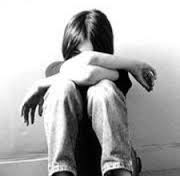Dr Brené Brown‘s sweetly funny video about empathy vs sympathy teaches us how to connect with others who are sad. I saw this video when it first came out and as Bear climbed down into the hole to be with Fox I thought “yes – exactly”. Since then I’ve learned the importance of inner strength and having back-up help before climbing into a hole to help a friend ~ especially for highly empathic people. If you’re not prepared their sadness, anger, despair or loneliness can impact you. You can’t climb out of the hole when you get stuck too and then you’re no longer helping. Which is why you climbed into their hole to begin with. In physical situations, like somebody falling through ice, would-be rescuers frequently become victims.
In this scene from the movie What Dreams May Come Annie (Annabella Sciorra) unable to cope with the grief of losing her children and husband commits suicide. Christy (Robin Williams) leaves heaven and attempts to rescue his wife from hell. In the movie hell isn’t a judgement but is shown as the dead’s own tendency to create “nightmare” afterlife worlds based on their pain. Chris is warned that if he stays too long with Annie he will begin to accept her reality as his own and will remain in hell. Chris doesn’t listen and sits with his wife who doesn’t recognize him until he eventually slides into her dark perception of reality.
The movie makes the idea of self-sacrifice for another person’s pain romantic and heroic but you don’t want to go there. It’s just a fantasy movie setting up for an amazing cheerful ending but in the real world giving up on yourself for love is a dangerous idea that could have a horrible ending for you and your friend.
So should you help a friend in need? Of course! “Don’t give up.” Be kind and empathetic but also be smart and when your friend needs more help than you can give get support from adults: parents, teachers, school counselor, doctors etc. Your friend needs you to do that.
Even professionals are trained to get back up help whether they are emergency rescuers, miners, or therapists. Check out the equipment/rules (and groovy illustrations) in this brochure for “Safety Guide for Work in Manholes”. The instructions can help people in many situations.
Things to Note When Entering and Staying in a Manhole: The responsible person shall have implemented all the safety measures recommended by the ‘‘competent person’’ before issuing a certificate to enter a manhole. Before any person enters a manhole, there shall be a sufficient number of persons on standby outside, including those who are appointed to carry out a rescue operation inside the manhole and those responsible for support services outside when such an operation is necessary.
Emotional and/or mental difficulties can be anywhere from mild to intense, can last anywhere from a short time to what can feel like forever. Needing help can come and go throughout a person’s life. Some people have a hard time only once and fully recover. For others, it lasts and can return even after it’s gone away for a while. When a friend is having a hard time then dealing with everything (family, school and friends) can be incredibly difficult.
Your friend may need the help of a mental health profession. And there isn’t any shame in that!
If we have a tooth ache we aren’t embarrassed to say “I need to go to the dentist”. If we think we’ve broken a bone we aren’t afraid to say “I think I need to get an x-ray”. So saying “I think I need to talk to someone – like a therapist” should be the same thing. Getting help for any problem early (tooth ache, broken toe, loneliness) makes healing quicker and easier than waiting until your tooth falls out of your head, your toe is twisted like gross knot or you feel like you’re all alone and there’s no hope.
Lots of people think that mental problems are rare and “happen to someone else.” when they are actually really common. About 54 million people in the USA suffer from some form of “mental disorder” in a given year.
I wish they’d come up with a better word for it than “disorder”. That word might be part of the reason that people don’t get help. Maybe the word “DISORDER” freaks people out “I DON’T HAVE THAT – NOT A DISORDER!!”
Since mental disorders are really common maybe we can use a really common word instead. A word that just about everyone can relate to… “Pain”. Mental and emotional pain. A simple “I hurt” and drop the “disorder” word so that kids go get help.

If you think you or someone you know may have mental or emotional problems, it is important to remember there is hope and help. (More info: Mental Health America)
Cara Zara End Bullying Help Page
Copyright Notice: Feel free to share my post and ideas but please give credit and link back to me. Thanks.
Video Note: Dr Brené Brown is a research professor and best-selling author of “Daring Greatly: How the Courage to be Vulnerable Transforms the Way We Live, Love, Parent and Lead” (Penguin Portfolio, 2013). She has spent the past decade studying vulnerability, courage, worthiness, and shame.
